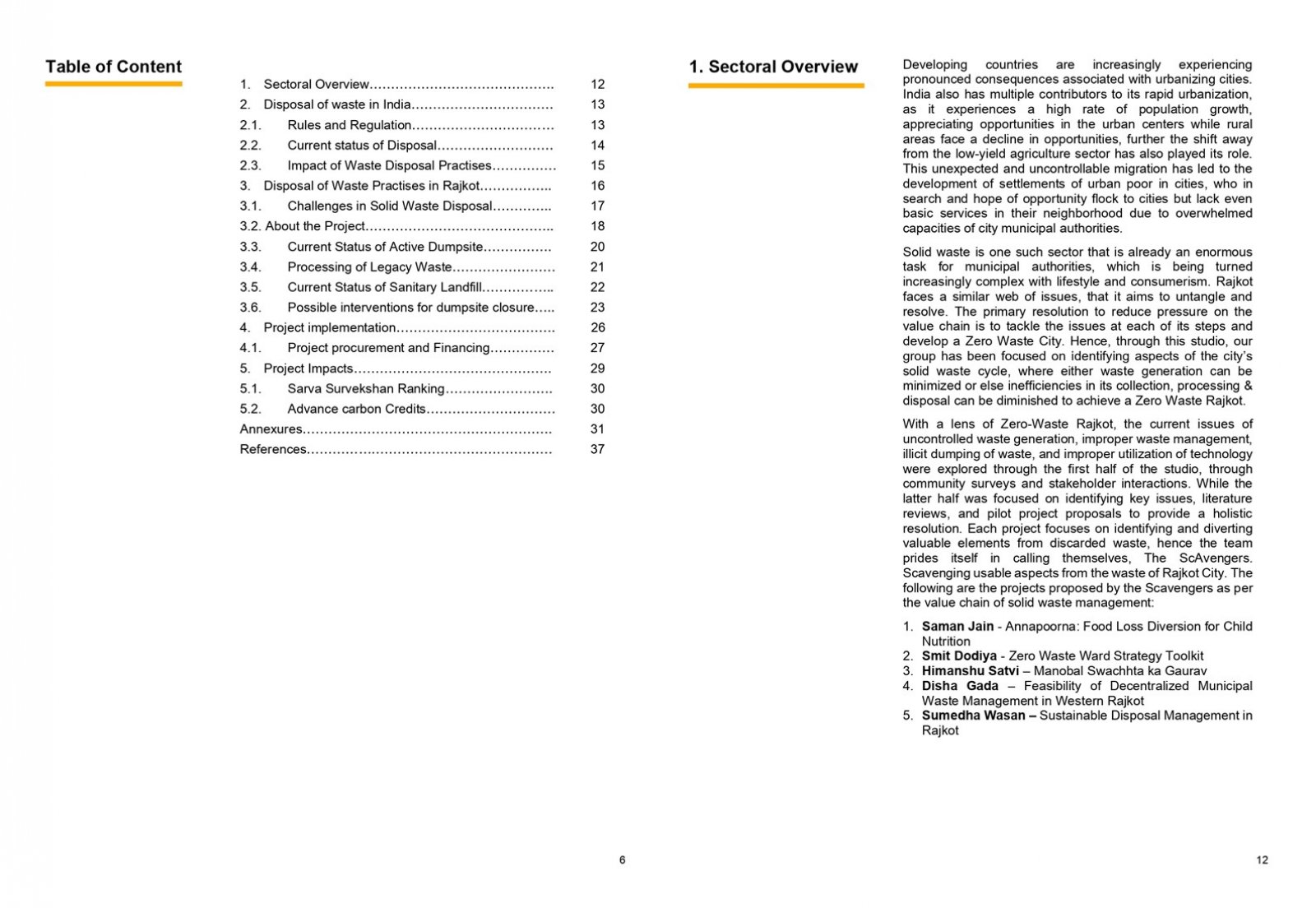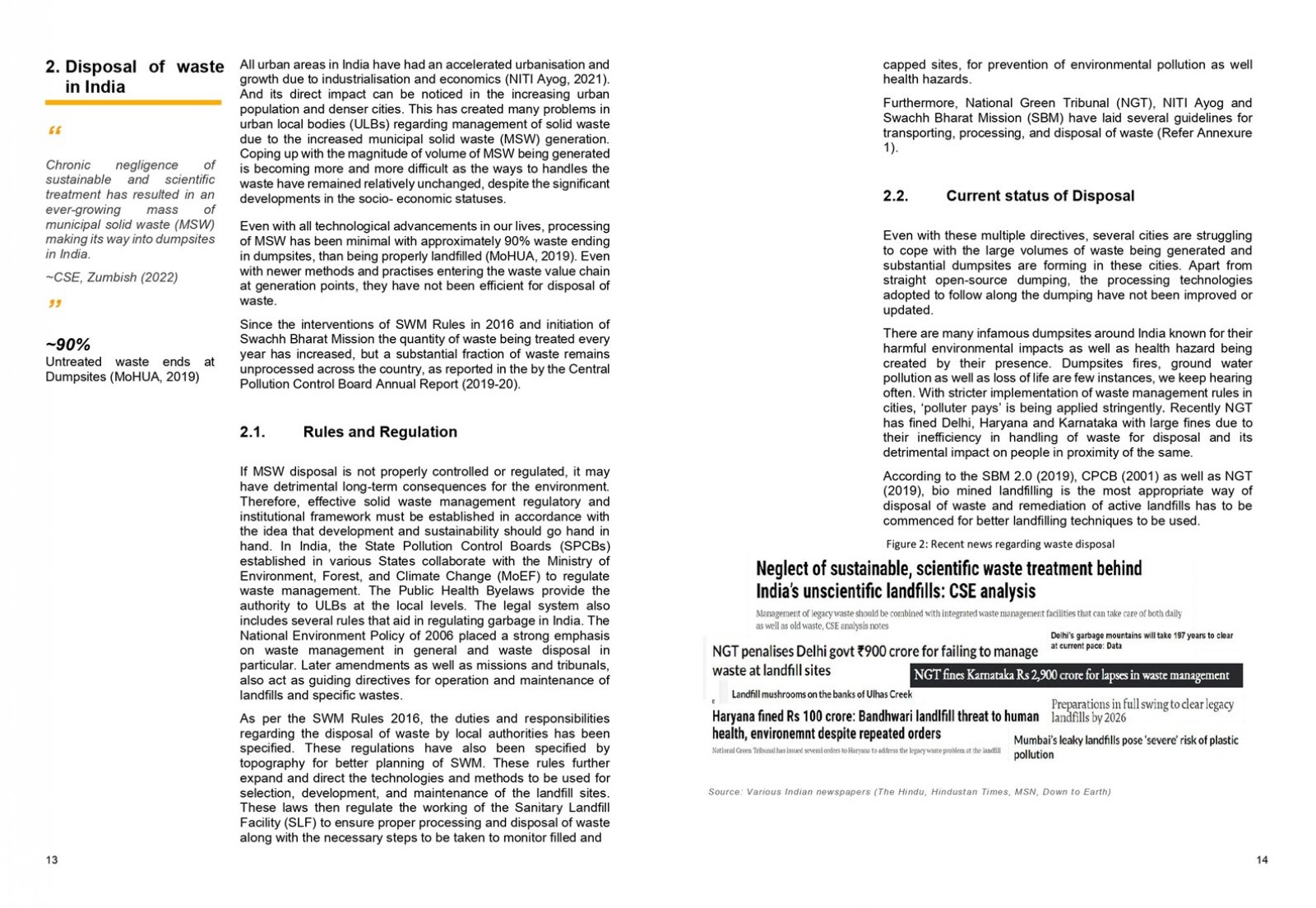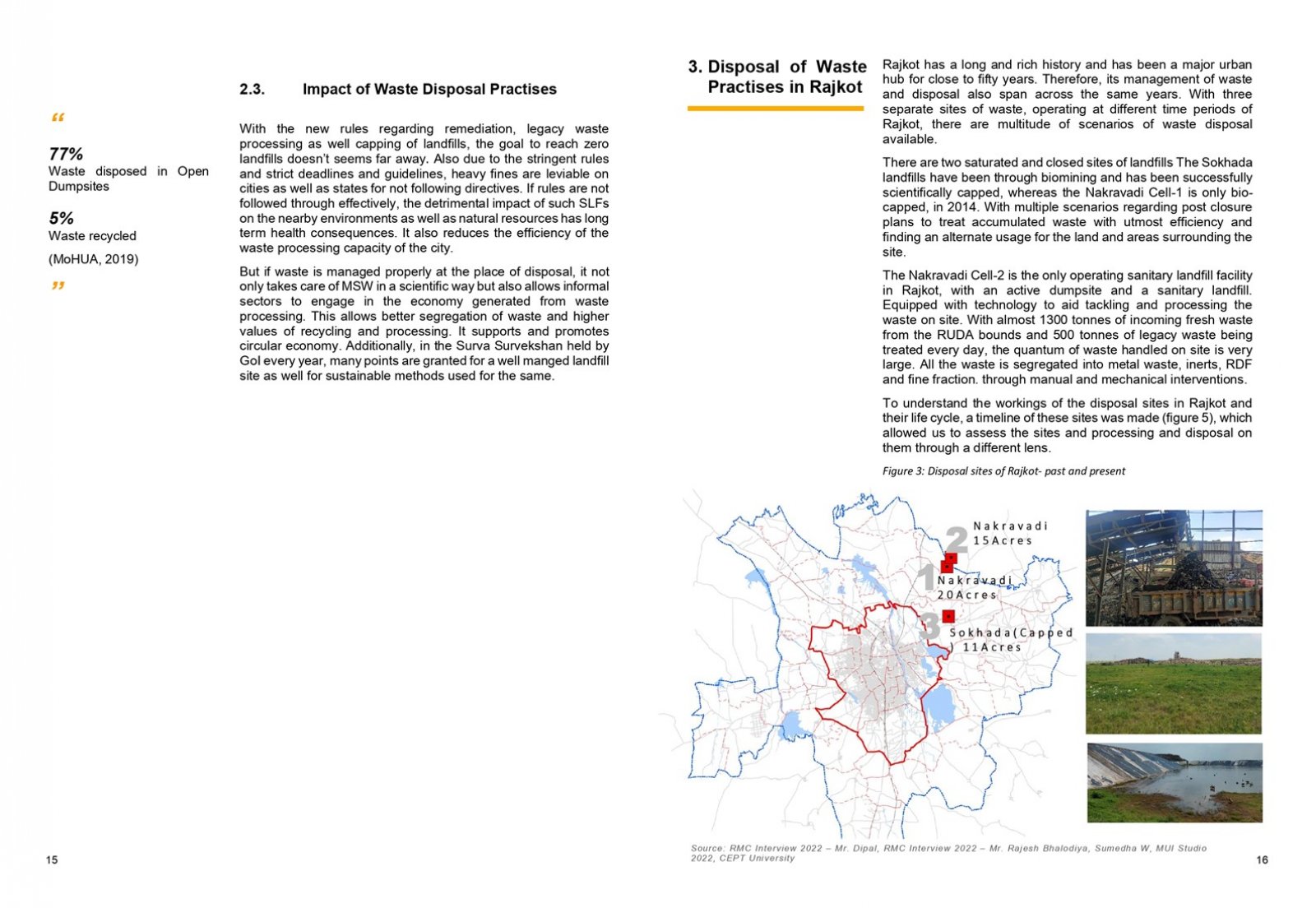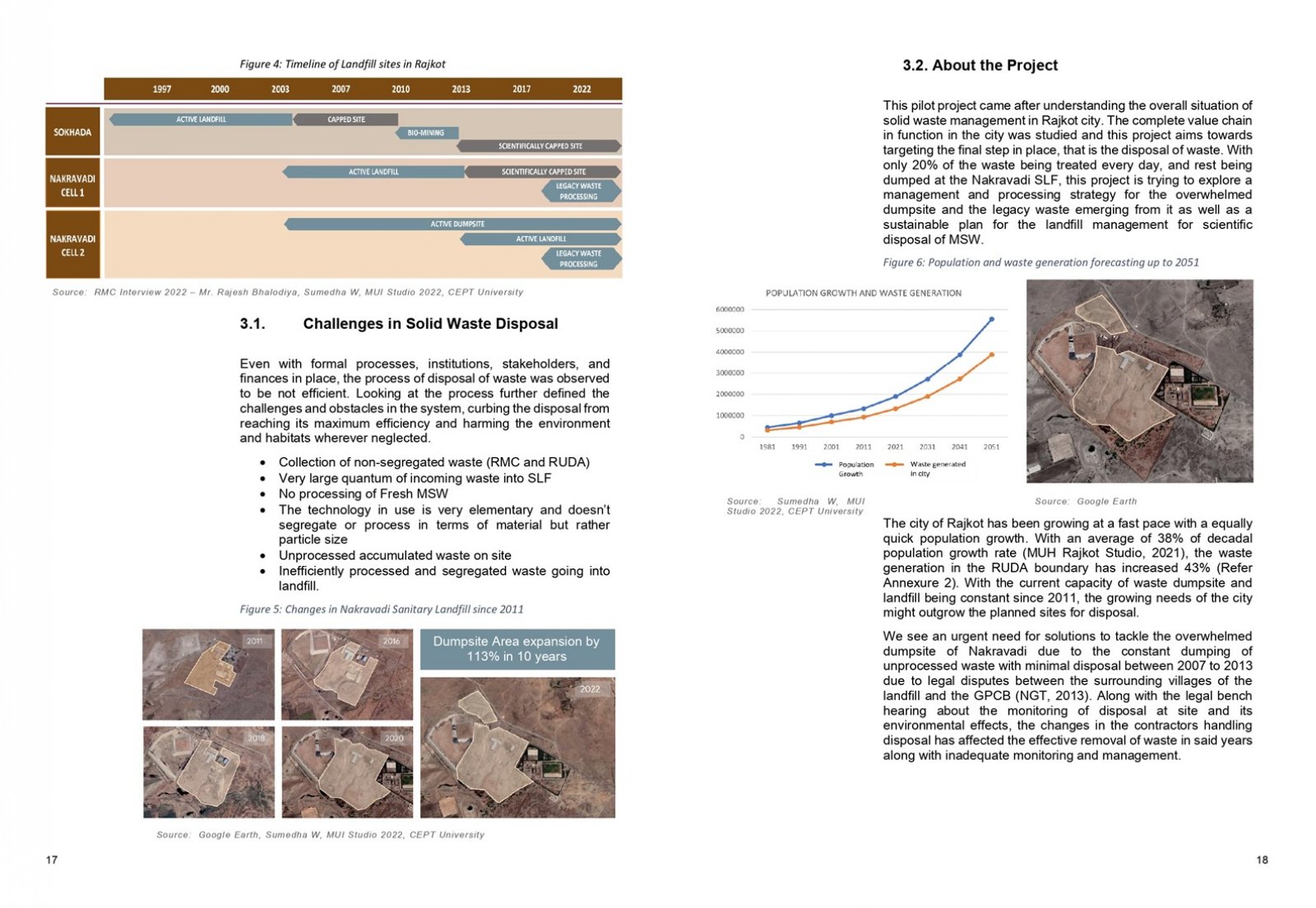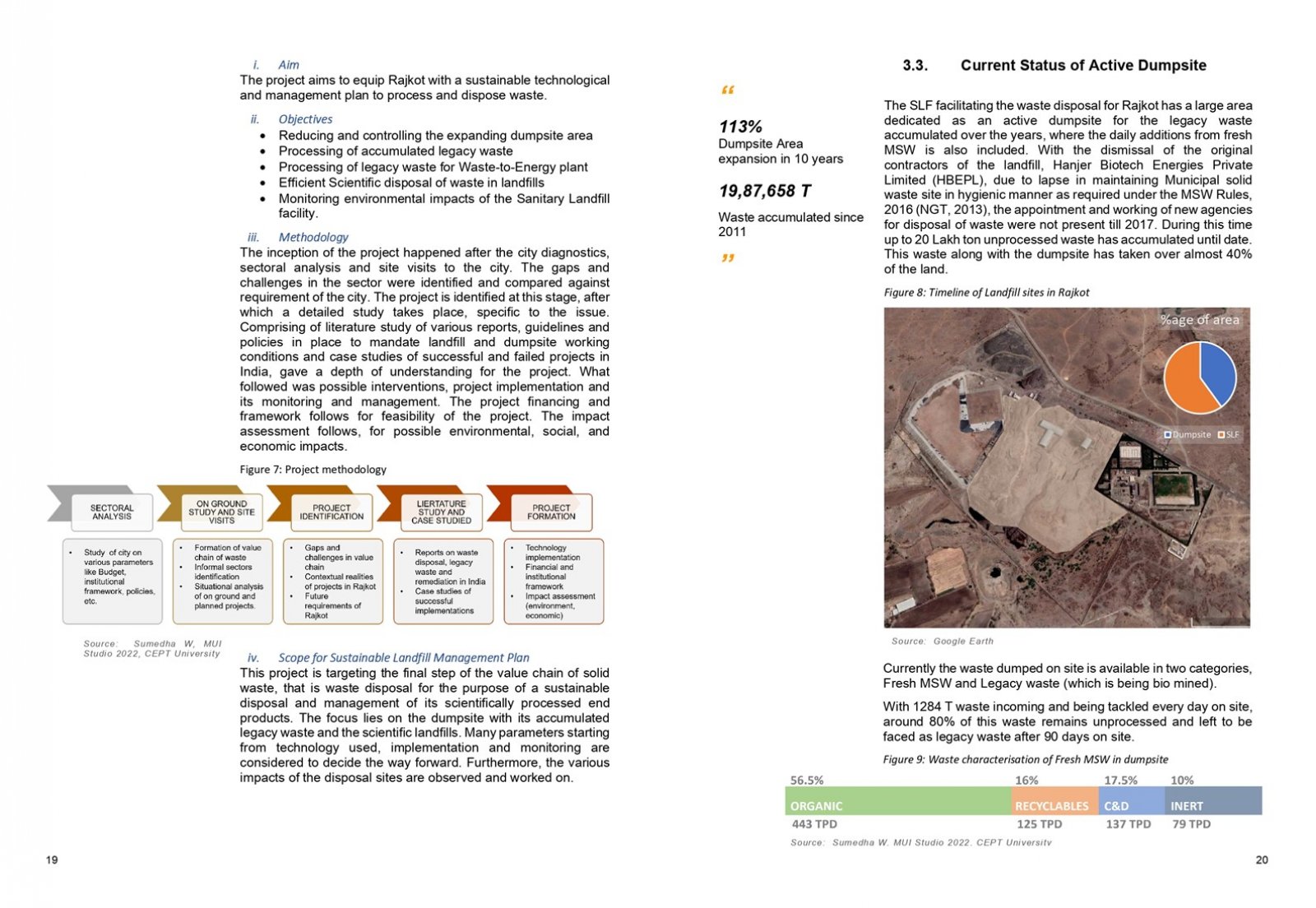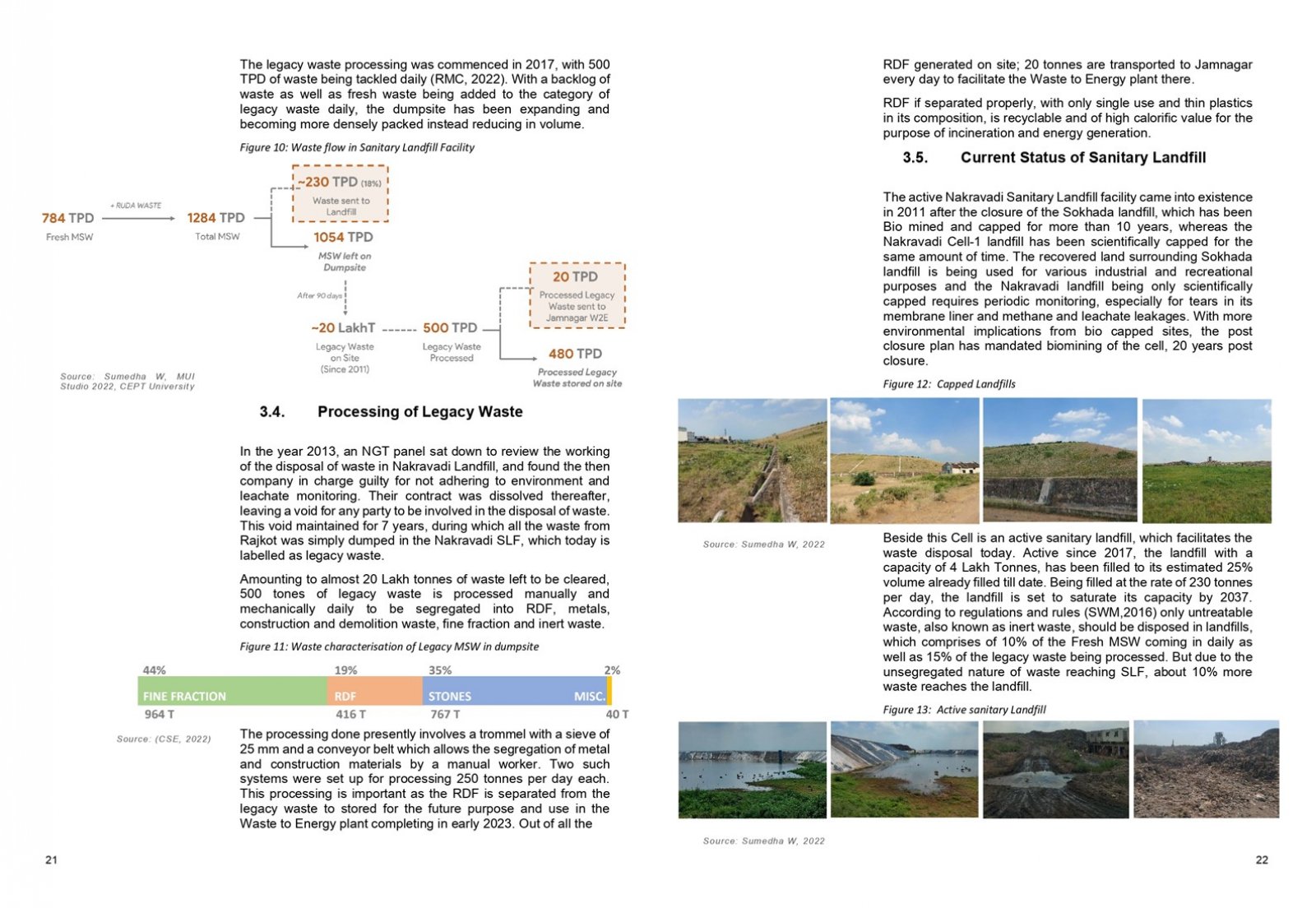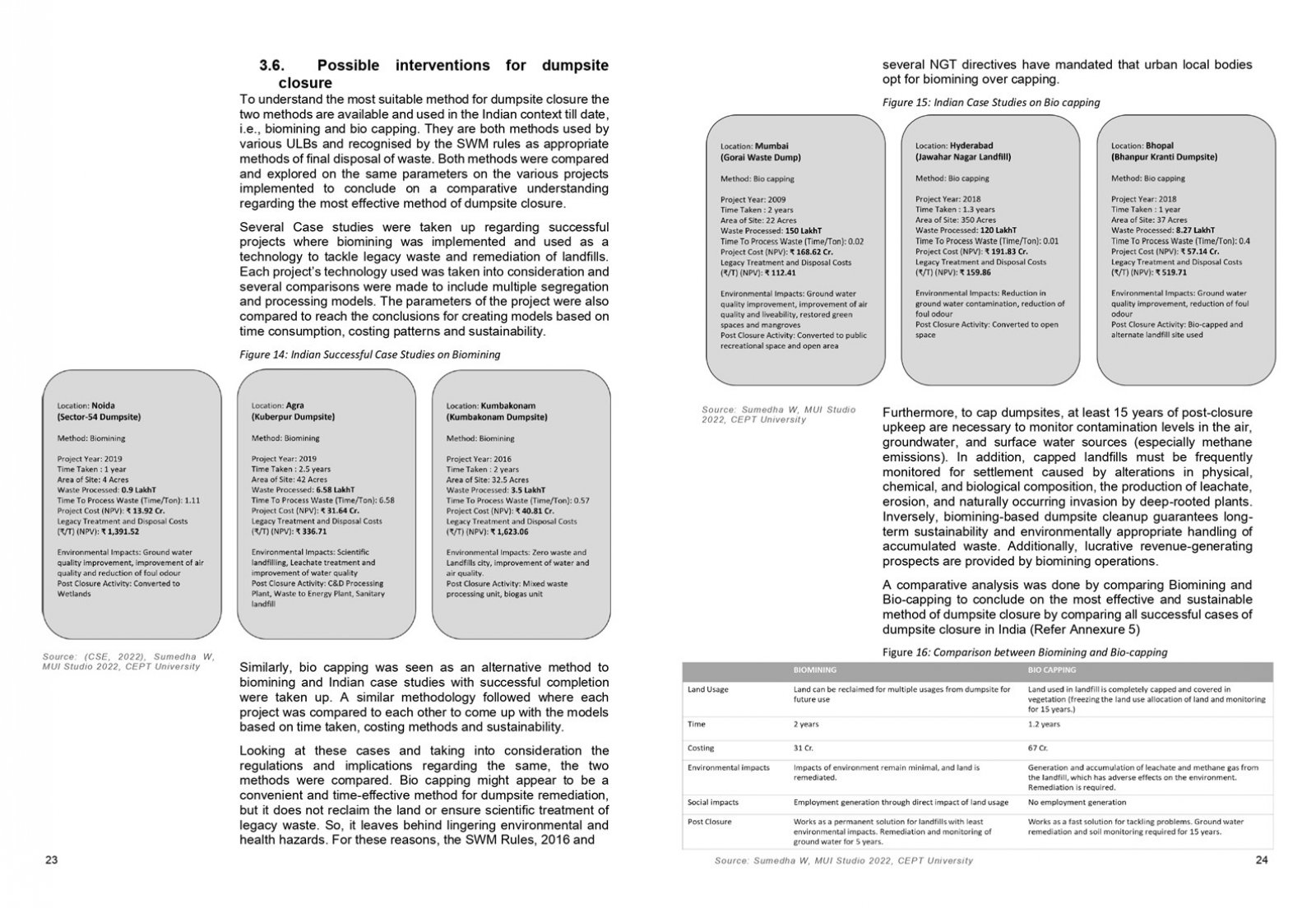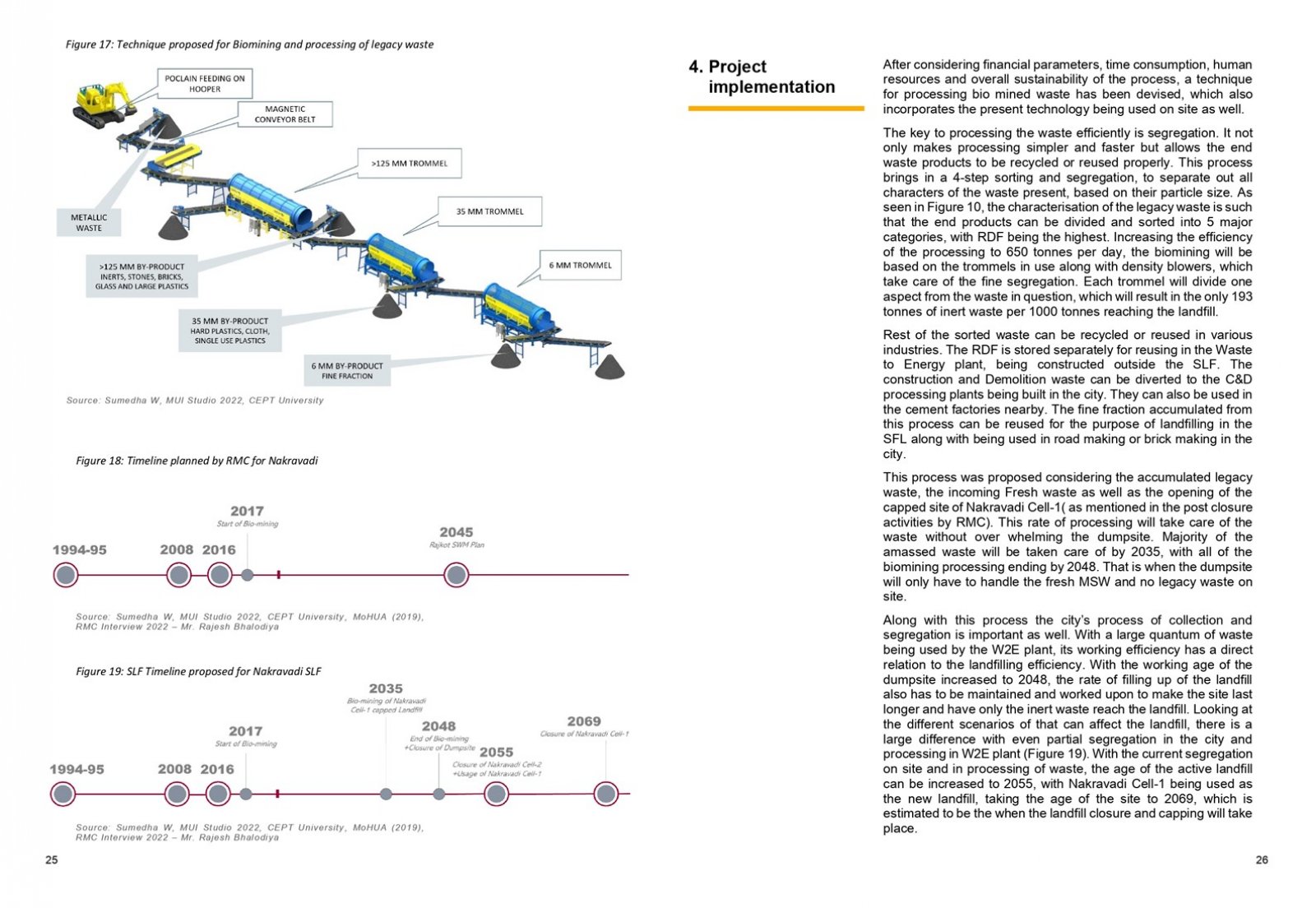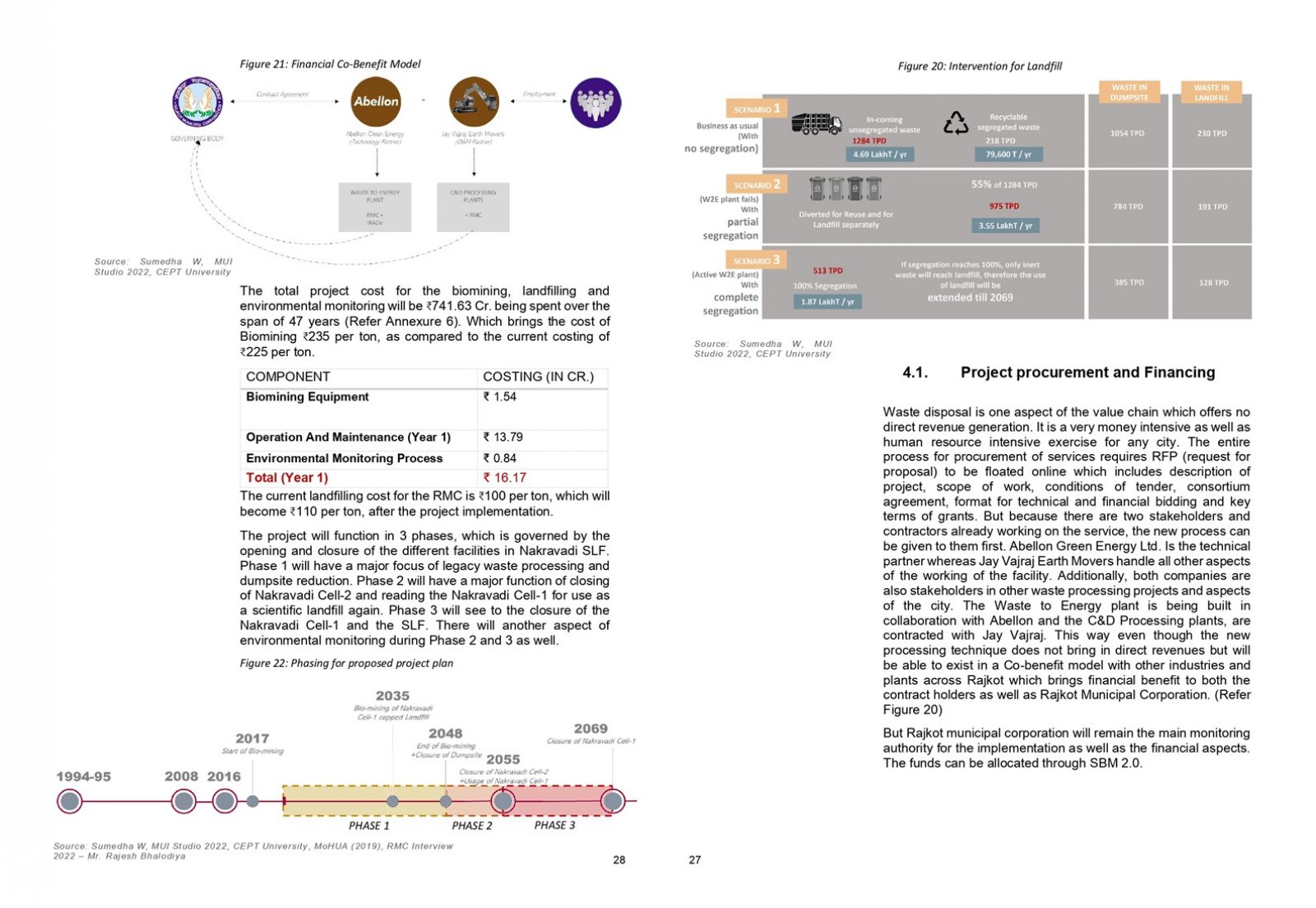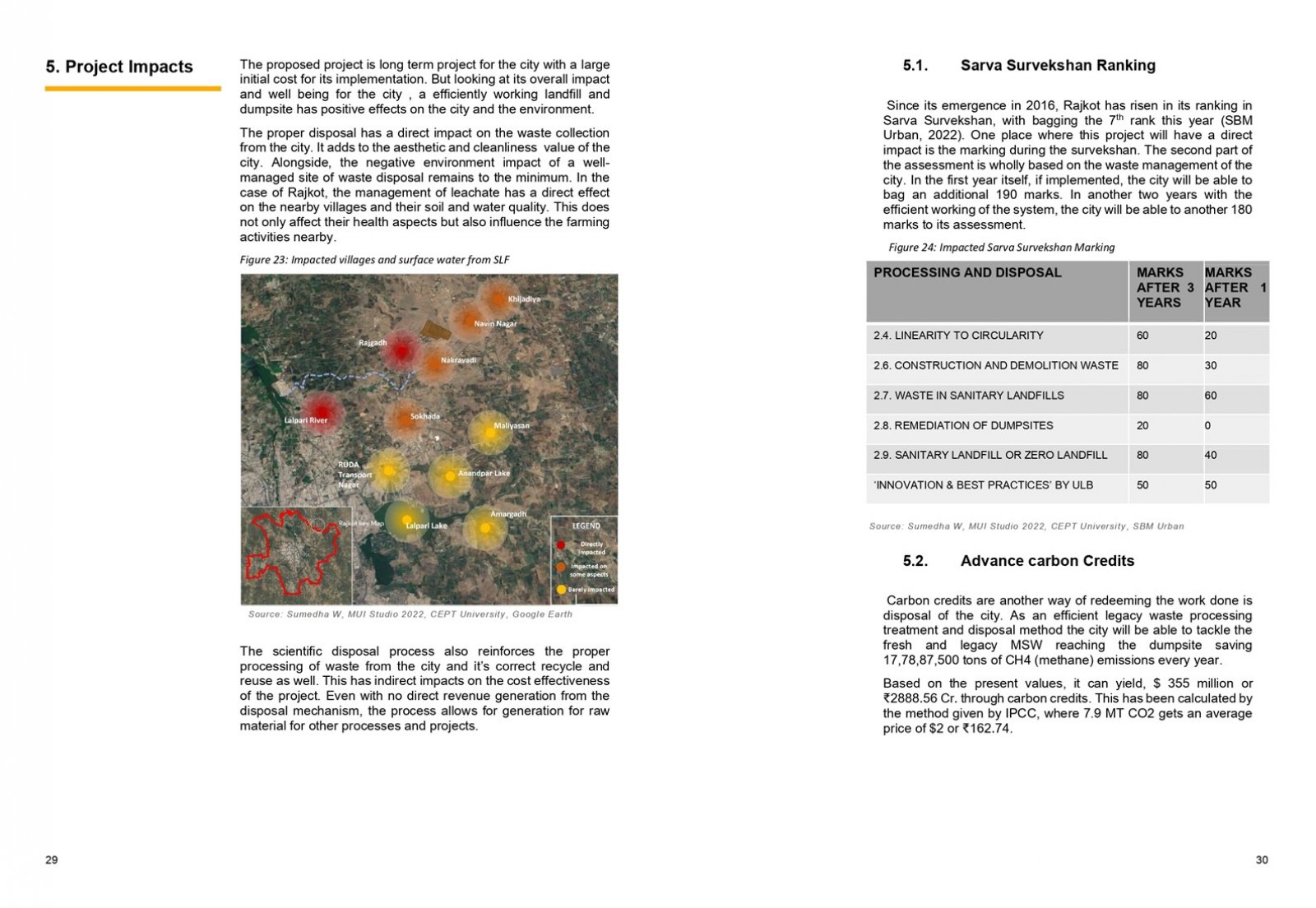Your browser is out-of-date!
For a richer surfing experience on our website, please update your browser. Update my browser now!
For a richer surfing experience on our website, please update your browser. Update my browser now!
Envisioning a Zero-waste city requires the focus on all aspects of the waste value chain to achieve the goal. With proper disposal of waste being the final step in the chain, it becomes the urban local body’s responsibility to handle the task with proper and efficient method. In the case of Rajkot, the challenge of an overwhelmed dumpsite was observed. Due to no disposal of waste between 2007 and 2013, the dumpsite has expanded by 110% and its impact can be seen in the inefficient processing and disposal of waste into landfill and environmental impacts in nearby villages and surface water bodies. The project aims to control the dumpsite and reduce its volume along with managing the active landfill. A major aspect remains processing objective of this project is to provide a method for and segregating the accumulated legacy waste in a sustainable manner. A technique for processing of legacy waste was put together after a thorough analysis of parameters like financial viability, time sensitivity, human resource and sustainability, through successful models and projects of disposal in India. The project would look at closure of dumpsite and longer and effective life of landfill as an end result.
View Additional Work